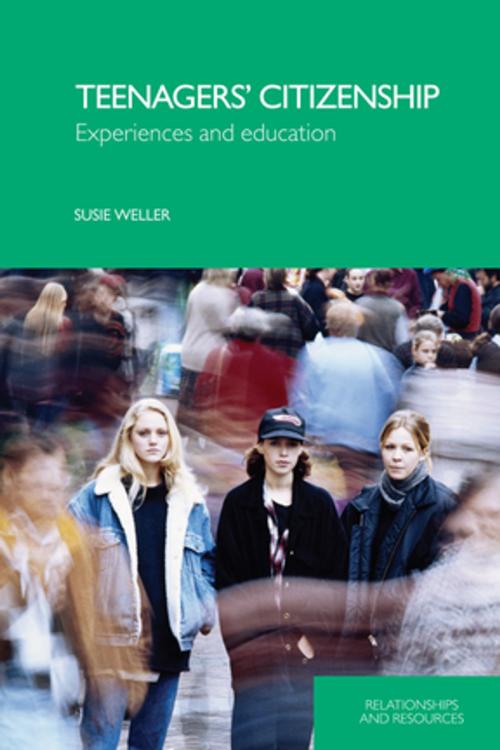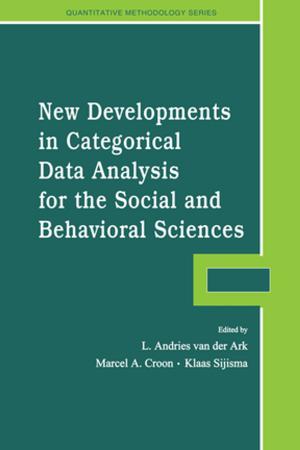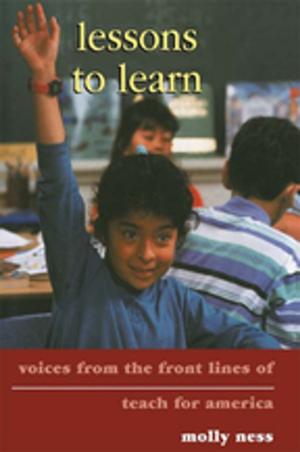Teenagers' Citizenship
Experiences and Education
Nonfiction, Health & Well Being, Medical, Patient Care, Health Care Delivery, Social & Cultural Studies, Political Science, Government, Civics| Author: | Susie Weller | ISBN: | 9781134137374 |
| Publisher: | Taylor and Francis | Publication: | April 11, 2007 |
| Imprint: | Routledge | Language: | English |
| Author: | Susie Weller |
| ISBN: | 9781134137374 |
| Publisher: | Taylor and Francis |
| Publication: | April 11, 2007 |
| Imprint: | Routledge |
| Language: | English |
The introduction of compulsory citizenship education into the national curriculum has generated a plethora of new interests in the politics of childhood and youth. Citizenship for Teenagers explores teenagers’ acts of and engagement with citizenship in their local communities and examines the role of citizenship education in creating future responsible citizens.
The first half of the book provides the context for teenagers’ experiences of citizenship, discussing issues around the ideas of childhood and citizenship, as well as the curriculum. The second half goes on to explore teenagers’ experiences of citizenship education, practising citizenship and exclusion from citizenship. The book concludes with a call for a new cumulative approach to citizenship which upgrades the status of teenagers, particularly within the classroom.
Susie Weller’s important book will throw new light on how teenagers engage with citizenship education and take on civic responsibility. It is an interesting and useful read for all those involved with education and youth policy as well as those studying for a PGCE or researching in citizenship education.
The introduction of compulsory citizenship education into the national curriculum has generated a plethora of new interests in the politics of childhood and youth. Citizenship for Teenagers explores teenagers’ acts of and engagement with citizenship in their local communities and examines the role of citizenship education in creating future responsible citizens.
The first half of the book provides the context for teenagers’ experiences of citizenship, discussing issues around the ideas of childhood and citizenship, as well as the curriculum. The second half goes on to explore teenagers’ experiences of citizenship education, practising citizenship and exclusion from citizenship. The book concludes with a call for a new cumulative approach to citizenship which upgrades the status of teenagers, particularly within the classroom.
Susie Weller’s important book will throw new light on how teenagers engage with citizenship education and take on civic responsibility. It is an interesting and useful read for all those involved with education and youth policy as well as those studying for a PGCE or researching in citizenship education.















